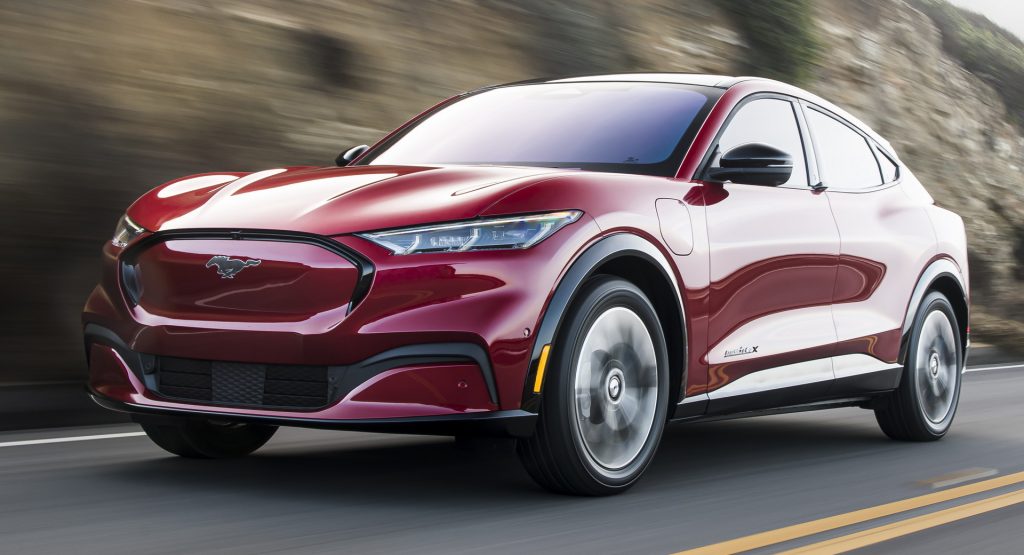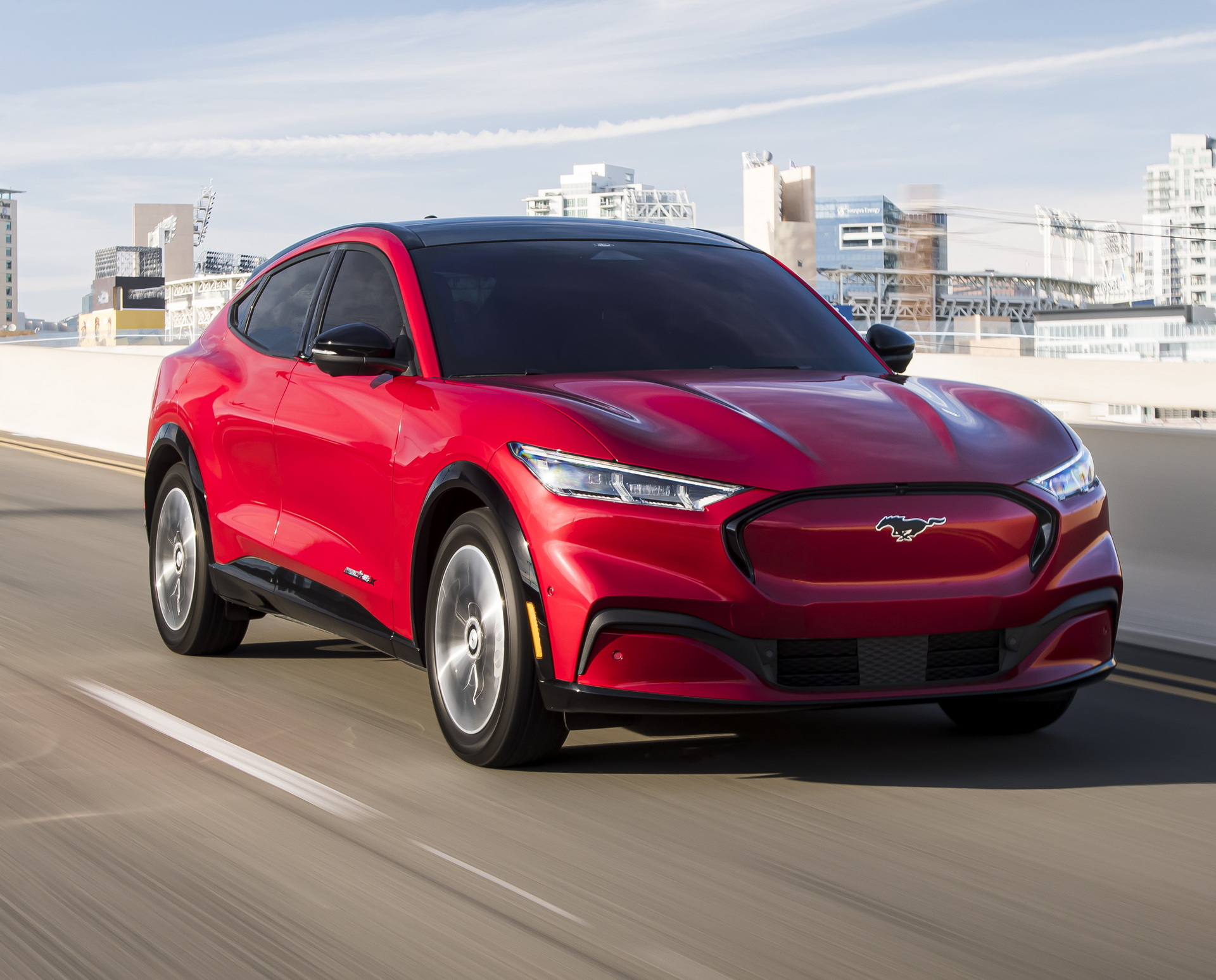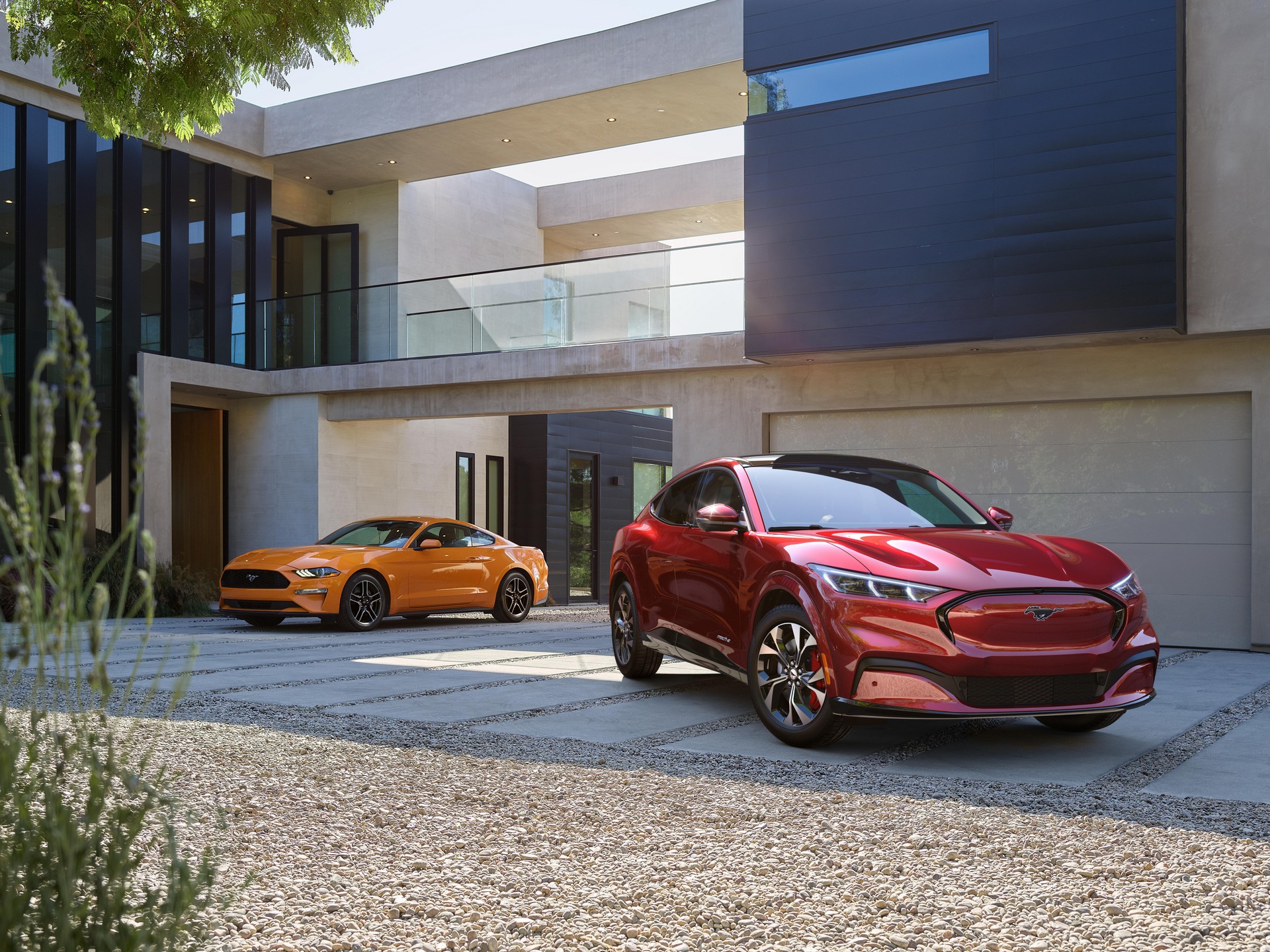Ford has acknowledged that rising raw material costs mean the Mustang Mach-E is no longer profitable for the carmaker.
While recently speaking at the Deutsche Bank Global Automotive Conference, Ford chief financial officer John Lawler said that soaring material costs will impact future electric vehicles from the company.
“We actually had a positive bottom-line profit when we launched the Mach-E, commodity costs have wiped that out,” Lawler said. “You’re going to see pressure on the bottom line when we launch our EVs, they’re not going to be positive.”
Read More: For New Car Buyers, EVs Might Not Be More Cost Effective Than ICE Models
The impact of soaring prices has had such a significant effect on Ford that a Mustang Mach-E now costs $25,000 more to produce than an equivalent combustion-powered Edge. To help mitigate costs, Lawler said that Ford is re-engineering the Mustang Mach-E on the fly to improve its margins.
Ford is spending $50 billion to expand its introduction of EVs and plans to build 2 million annually by 2026. Lawler said that popular combustion models like the Bronco are underwriting its forthcoming EVs but added that Ford’s goal is to make money on its new EVs “as we’re scaling and we’re launching these vehicles,” Yahoo reports.
Prices of the Mustang Mach-E have increased this year to help somewhat offset rising material costs. For example, prices of the entry-level Standard Range RWD Select variant rose by $1,000 for the 2022 model year while prices for the Extended Range RWD California Route 1 and Premium jumped by $2,375 and $2,500 respectively. Ford had also planned to introduce an additional round of price hikes in April but opted not to, Ford Authority reports.
The 2023 Mustang Mach-E is just around the corner and orders are expected to open in mid-August. Limited updates are expected but we do know the tweaked EV will receive the same charging-locator system as the F-150 Lightning.





